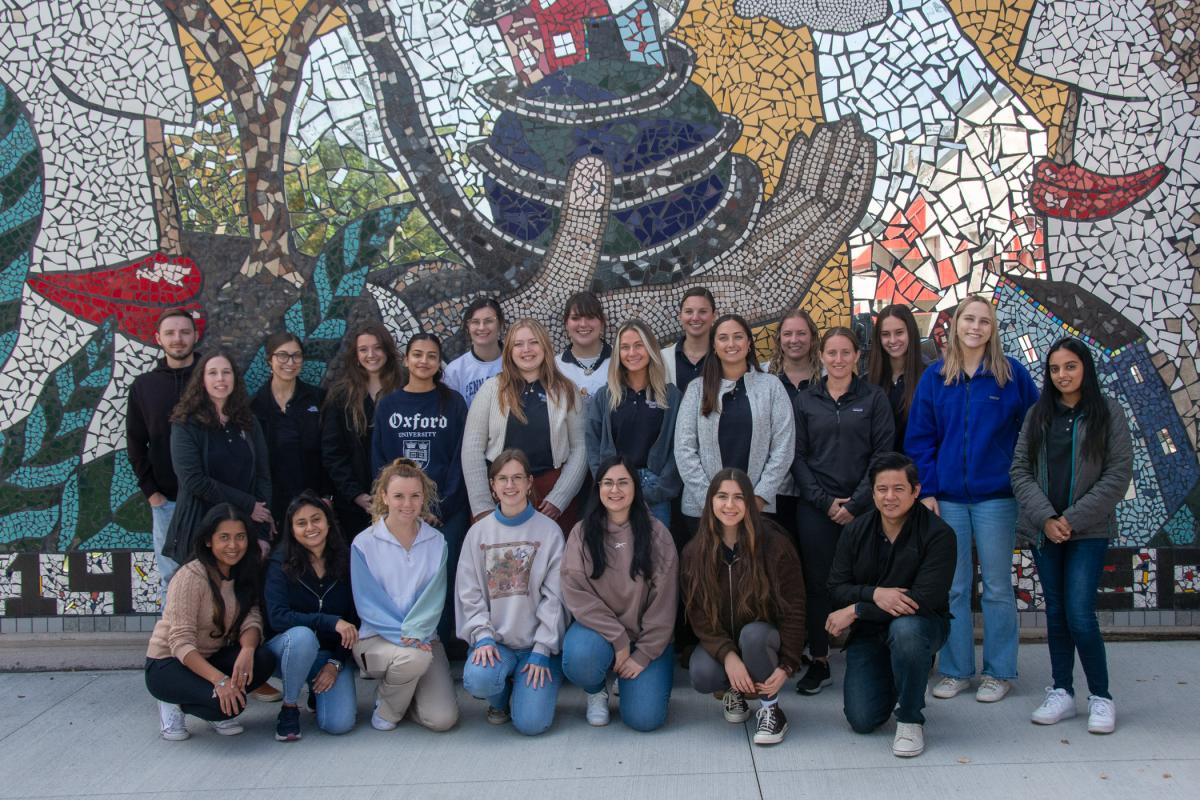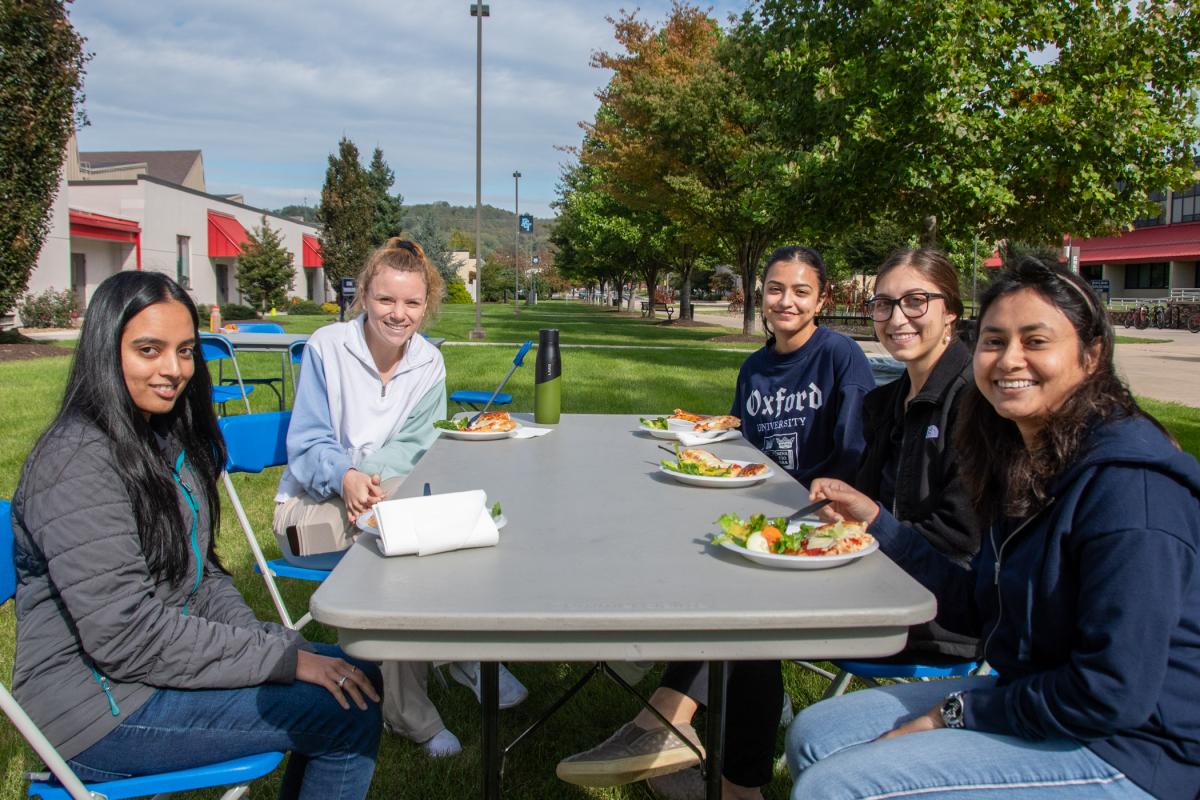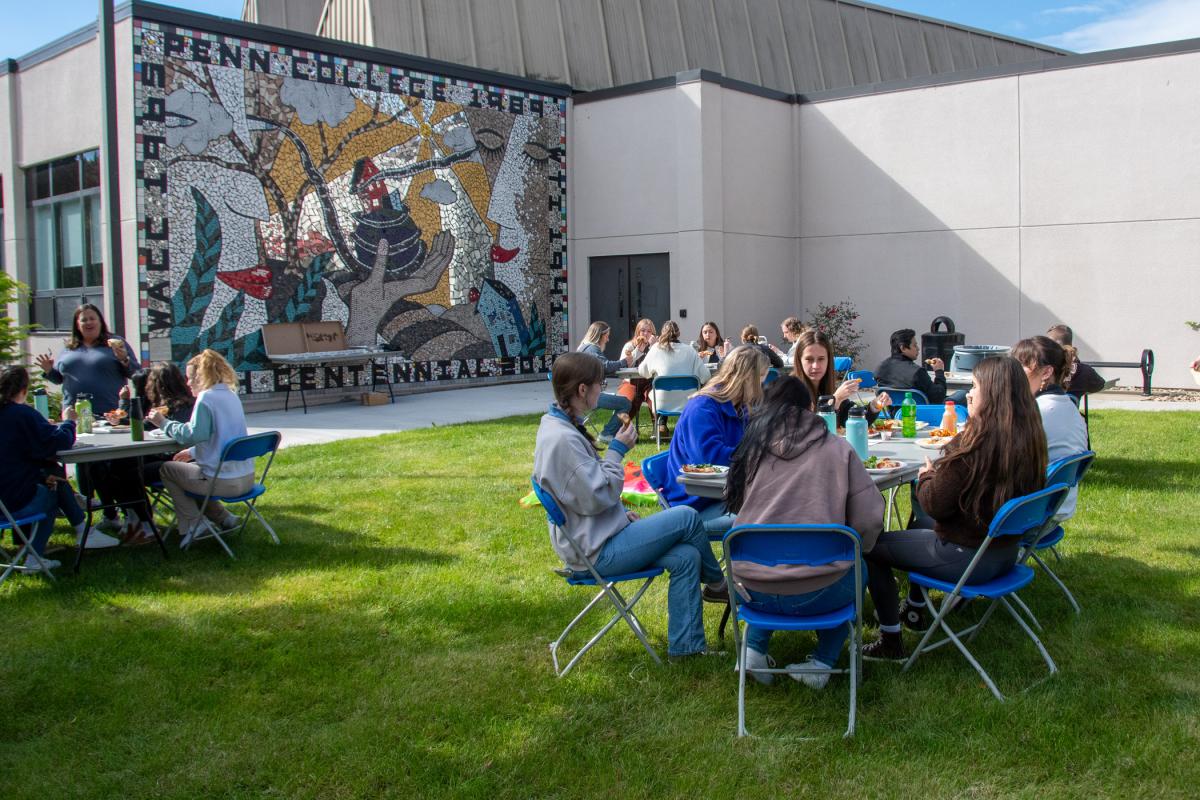Observance celebrates PAs' contribution to nation's health
Wednesday, October 11, 2023

Students in Penn College's physician assistant program capped off PA Week, celebrated Oct. 6-12 every year, with a Wednesday pizza picnic in front of the Physician Assistant Center.
PA Week is promoted by the American Academy of Physician Associates, which offers these tidbits about the ways physician assistants/physician associates “go beyond”:
- Leading with experience and expertise
PAs are experts who complete rigorous medical education and training. Every PA student completes 2,000 hours of clinical rotations over the course of their three-academic-year master’s degree program. They’re drown to the profession because it provides the opportunity to spend meaningful time with patients: listening, collaborating and healing. They practice in every health care setting – hospitals, urgent care centers, outpatient offices, clinics – and they practice medicine in all specialties. They are lifelong learners committed to ensuring their patients receive the most comprehensive and current medical care, including preventive care.
- Listening with compassion
PAs know the importance of making sure patients feel heard and respected. That’s why PAs advocate for patients: emphasizing patient-centered care while working collaboratively within the health care team, prioritizing patients’ individual needs, and ensuring they receive focused attention and thoughtful communication at every interaction.
- Empowering patients with personalized, quality care
PAs are leaders in public health, providing essential preventive care that leads to improved health outcomes and stronger communities. They provide screenings, check-ups and patient education in order to identify and treat problems early. They empower patients to make informed decisions about their health, communicating information plainly and ensuring no questions are left unanswered.
- Strengthening the core of our health care system
The health care system is strained beyond capacity, a problem that will only get worse as the U.S. population grows and ages. As a rapidly growing workforce of rigorously trained clinicians who are valued members of patient-centered, team-based care, PAs increase access to quality medical care for patients across the country.


